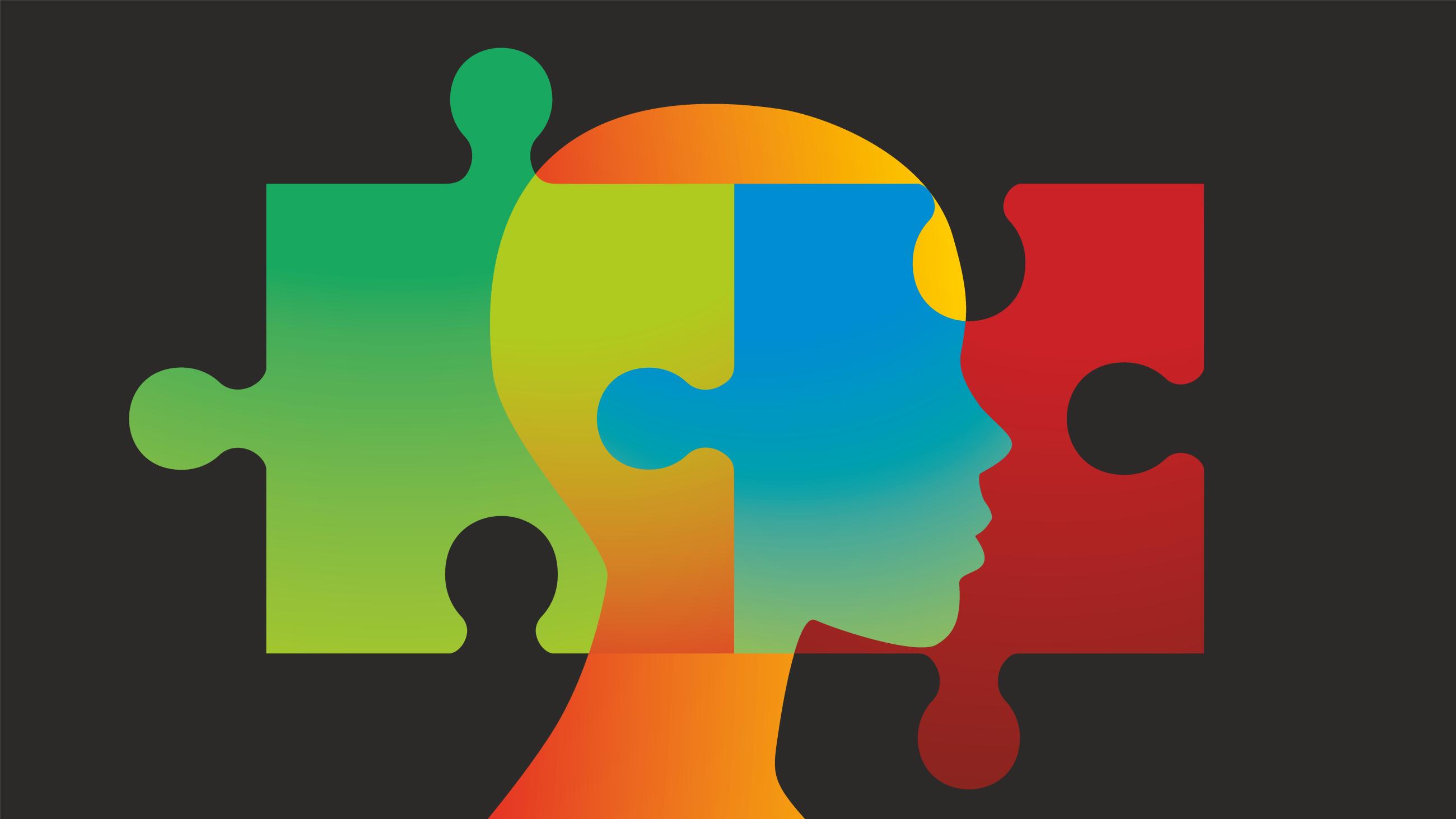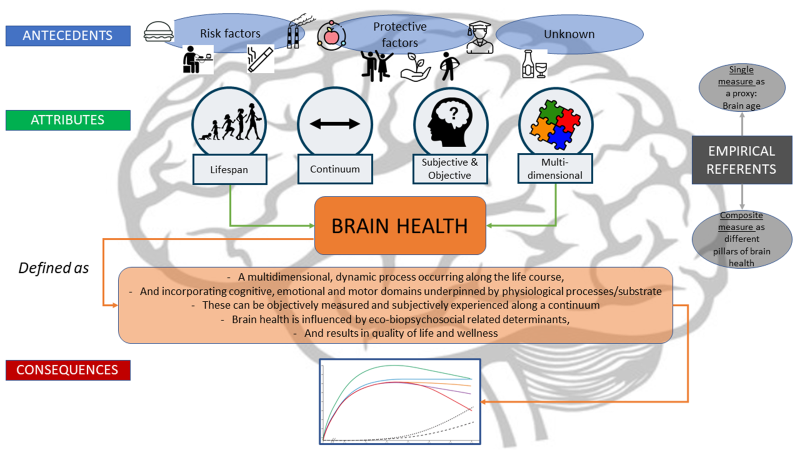A Concept Analysis and a Definition for Brain Health
Although the term “brain health” has become increasingly popular in lay and professional settings, a consensus definition is lacking. In this study recently published in the International Journal of Geriatric Psychiatry, my colleagues Naiara Demnitz, Stacey Yamamoto, Kristine Yaffe, Brian Lawlor, Iracema Leroi and I aimed to define and to conceptualize this important state.
Our endeavor has been driven by the goal to better understand what is meant by brain health. Does it refer to a cognitive, emotional, or mental process—or something else? We created a definition that exists along a continuum, encompassing multiple layers, including biology, well-being, cognition, and more. We are happy to share some of the major points with you here.
Our work on this project started in 2020. We used a concept analysis, a research approach to understand and measure concepts that are abstract and ambiguous. This applies to brain health, which—since it first appeared in the scientific literature in 1989—has been used in many ways. Our study involved three stages: (1) a review of existing definitions; (2) a survey; and (3) a final analysis, integrating the findings into a working definition and model.
Our review of the literature found that six published papers proposed a definition, ranging from over-simplified biomedical models to those incorporating a multi-layered and holistic approach. These definitions exist along a spectrum of cognitive health to mental health, with a lot of overlap.

We classified the core elements of brain health according to twelve models:
- Biological function
- Disease
- Cognitive
- Prevention
- Wellbeing and holistic
- Multidomain
- Fitness
- Dynamic life course process
- Optimal function
- Autonomy-resilience
- Subjective experience
- Empirical referents
Next, we surveyed people from the Global Brain Health Institute (GBHI)—an international community of brain health professionals representing 40+ countries—with questions relating to perceptions, usage, and definitions of brain health. Over half of the 73 respondents reported that the term was not commonly used in their country of origin.
The survey asked people how much they agree with several definitions of brain health taken from the current literature. All were endorsed by a majority of respondents—meaning they agreed with the definitions—who supported the idea that no single definition was enough. Participants also offered their own definitions of brain health. Though most themes mapped onto the existing definitions, two new themes emerged: 1) the notion of brain health as involving subjective experiences, which can differ from person to person; and 2) brain health as a measurable construct, either in quantity or quality.
Finally, we combined the findings from our literature review and survey into a working definition. Our proposed definition (also visually represented in a concept map below) is that: Brain health can be defined as a life-long dynamic state of cognitive, emotional and motor domains underpinned by physiological processes. It is multidimensional and can be objectively measured and subjectively experienced. Brain health is influenced by eco-biopsychosocial determinants, resulting in a continuum of quality of life and wellness.

To advance efforts related to brain health, it is vital that we are able to understand one another. Thus, this working definition of brain health is important to developing policy, practice, research and advocacy. The definition needs to be easily applicable, and its outcome need to be measurable with reliable tools. The dissemination of this definition also requires cross-cultural validation and adaptation. Our definition opens the possibility of embracing positive outcomes, regardless of the starting point on the continuum of brain health.
Authors

Yaohua Chen, MD, PhD
Neurogeriatrician
GBHI Members Mentioned

Naiara Demnitz, DPhil, MSc
Cognitive Neuroscientist

Brian Lawlor, MD, FRCPI, FRCPsych, MRIA
Founding Director, Trinity College Dublin

Iracema Leroi, MD, FRCPC, MRCPsych
Site Director, Trinity College Dublin

Kristine Yaffe, MD
Professor of Psychiatry, Neurology & Epidemiology

Stacey Yamamoto, MPH
Assistant Director for Program & Strategy

